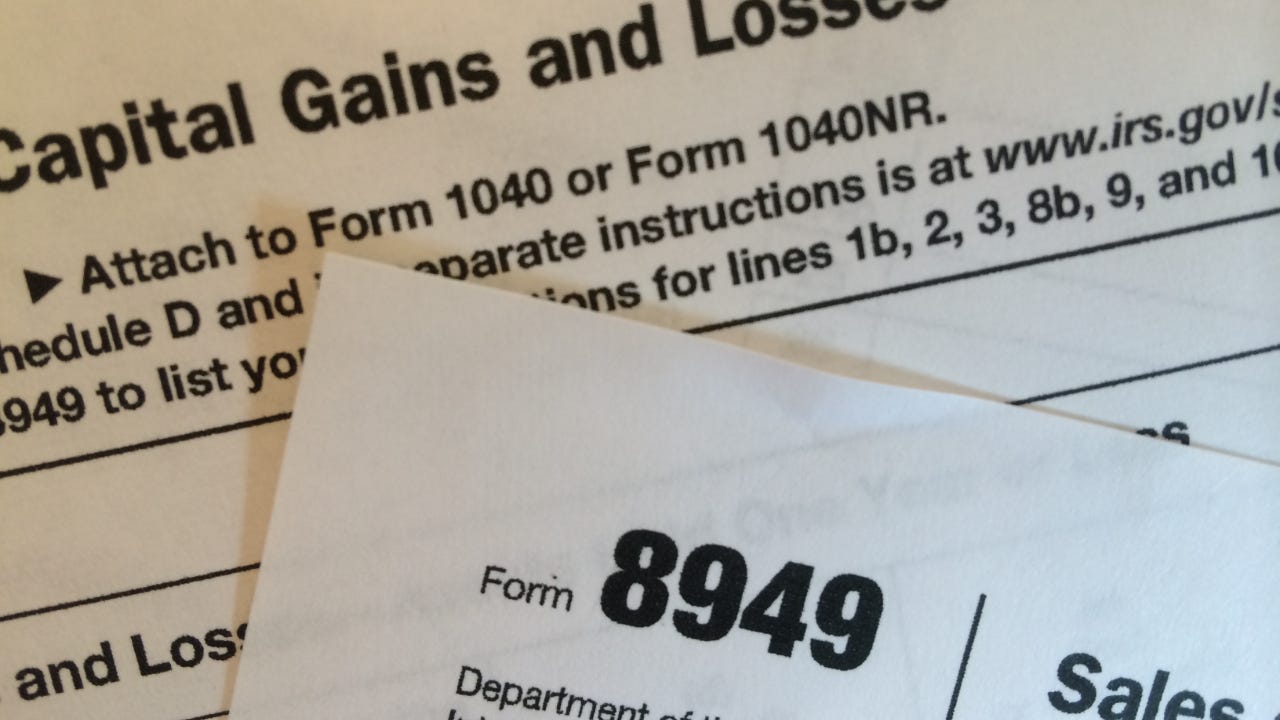
Taxes are one of the most important responsibilities that comes with being an adult, and paying them can sometimes be just as difficult. Even more challenging than figuring out how much you owe in taxes each year is reporting cryptocurrency gains correctly on your tax return. If you’re like most cryptocurrency investors, this means that you likely have some questions about how to properly report these types of gains so that you won’t pay any unnecessary penalties after filing your taxes at the end of the year. This guide will provide answers to some of the most frequently asked questions regarding cryptocurrency taxes.
Why is it imperative that this year, more so than ever, investors are properly abiding by IRS taxing standards?

The government has taken notice of the increase in cryptocurrency investments, issuing official communications regarding their efforts to regulate the industry. Over the past year, the growth of cryptocurrency transactions has led many government organizations to crack down on investors. White House spokespersons and Democratic legislators have blamed the recent tax gap largely on the crypto economy and lax reporting requirements.
Just this year, several federal governmental organizations have written letters encouraging the public to file a federal tax form related to cryptocurrency transactions and indicating that answering yes or no to a question on this form is now necessary. This step signals an emerging movement to more rigidly regulate cryptocurrency transactions. If investors fail to disclose this information and their associated income, they might have to pay significant penalties.
How to file your crypto taxes?
.jpg)
Before determining their filing status, how they will file their taxes, applying the standard deduction, or making a payment, investors must calculate their net gain or net loss. A tax-planning professional or a user can calculate their gains and losses to file their taxes. The IRS Form 8949 is used to report individual capital gains and losses. This forms either a net capital gain or a net capital loss based on the total gains and losses. Tax professionals, CPAs or software filing solutions will use this information to generate Form 8949 based on the income received from the rest of the investor’s investments, such as stocks.
Exchanging cryptocurrency will generally produce 1099-B forms, which investors can match with Form 8949. Issues arise only when there are discrepancies in values, which may result in audits or CP2000 notices. Having completed these calculations, investors will have the opportunity to proceed to the rest of the tax filing process. Steps include determining the filing method (the IRS typically recommends that you file electronically), deciding whether to use a standard deduction or itemized deduction, and making payments as indicated.
What makes managing cryptocurrency taxes difficult?

Cryptocurrencies are handled differently than traditional assets and that has caused confusion among CPAs when it comes to cryptocurrency taxation. The difference is in how they’re treated as they are either securities, collectibles, currency, or something else. The tax rules change from one classification to the next. Rules are different, so sometimes investors might require the help of a professional to correctly account for their cryptocurrency transactions, even when accounting is managed with the help of crypto tax software. Other rules make things more complex by suggesting that transactions with assets like BTC made with USD in 2021 don’t require the transaction to be documented on a tax report, even if the asset in question is sold at a later date.
The same virtual currencies are also required to be reported when sold or exchanged. For those who do a lot of trading or holding multiple currencies, the sheer amount of data that needs to be viewed can be challenging. In the past, tax professionals have been able to help with some of the more complex nuances associated with tax compliance, but over the last year, tax professionals have resigned in large numbers. The COVID-19 pandemic has led to increased reports of burnout and overtime hours for investors, so they’re often left to calculate taxes on their own.
How can I optimize my tax returns with crypto?

The 0% tax rate on long-term gains and other tax strategies like the use of HIFO are available to investors. Tax strategies, such as the 0% tax rate on long-term gains, are offered to investors. Depending on the investor’s filing status, annual income, and length of time since the investment was made, as much as $80,000 in profits can be made before taxes are due. This can be accomplished through the use of one of two tax strategies, either the highest-in-first-out method or specific identification. In this strategy, the user must choose the item at the highest price. These items then act as what’s being sold. This reduces their revenue and, in turn, their tax bill.
This can also include mining, which is taxed similarly to bartering. For example, if a person were to mine for Bitcoin, it would be considered taxable income and be counted as part of their taxable earnings for that year. Whether or not Bitcoin and other cryptocurrencies are considered currency is still unclear. As such, they may be taxed at capital gains rates instead of as income. As such, there isn’t a set standard yet on how virtual currencies will be taxed in each country.
How to harvest losses with crypto?
.jpg)
Take losses netted from trading cryptocurrencies against the profits you made to bolster your tax return. Many cryptocurrency investors will leverage a strategy known as tax-loss harvesting in order to offset their taxes. Because of these crop losses, investors watch cryptocurrency prices, waiting for when they can get in at a lower cost, because capital losses can be reduced with income, reducing one’s overall tax burden. If investors buy assets that later are sold for less than their purchase price, they can be used to offset other assets they bought and sold that earned a higher return. Bitcoin is another possible way to reduce your tax bill if you bought it at a low price and sold it at a higher price.
If you live in America, be sure to remember that crypto-currency is treated as property under US law and not currency. This means that every time someone buys or sells the coins they need to include the taxable price and income on an IRS Form 8949 with their annual income taxes. In addition, if the coin is held longer than a year before being traded then there’s a long-term capital gains tax rate. The trader needs to report the date they acquired the coin and its fair market value (FMV) on this form too.
The IRS has provided specific instructions for reporting crypto transactions: • List date acquired • FMV • Transaction description • Cost basis • Gain/loss